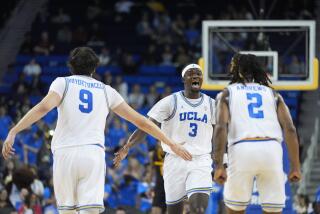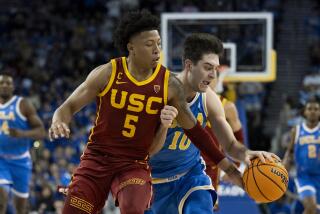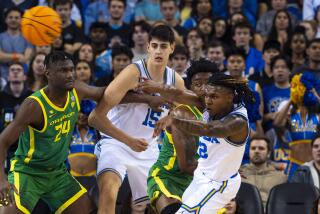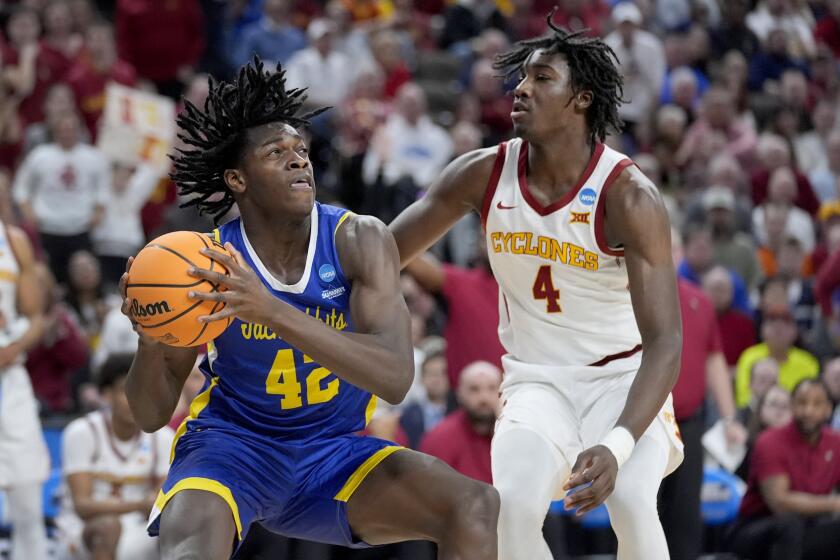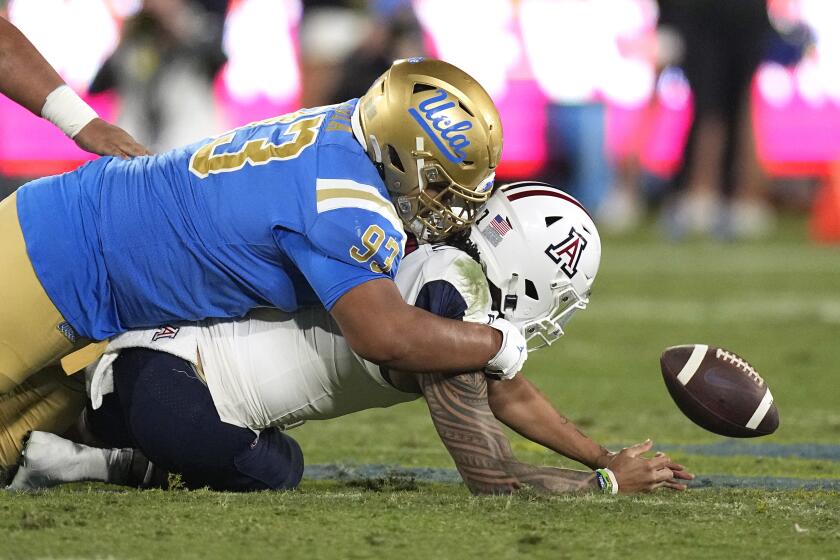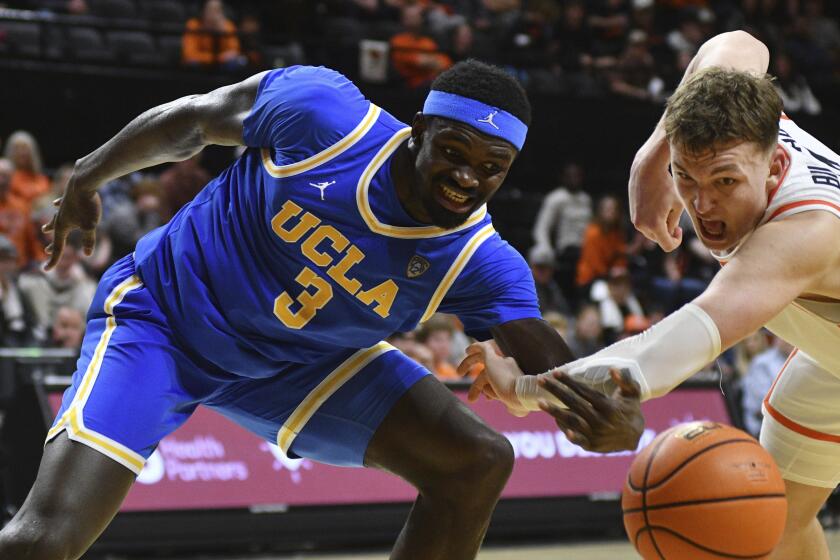Norman Powell is a bright spot for a youthful, ragged UCLA team

In almost all aspects — tempo, defense, shooting — the UCLA men’s basketball team needs to improve on its performance in Friday’s exhibition game or it could be in for a long nonconference season.
The one bright spot, though, was the play of Norman Powell, who will be counted on as the go-to scorer for the Bruins this year. The 6-foot-4 senior guard was aggressive, dynamic and, on offense at least, the best player on the floor. In 26 minutes, Powell scored 21 points and was 10 for 10 from the free-throw line in the Bruins’ 80-53 victory over Azusa Pacific.
“That tells me in 25, 26 minutes you can get there 10 times, how aggressive you’re being,” UCLA Coach Steve Alford said. “Very, very aggressive.”
That is the Powell UCLA will need. He is not only the most experienced returning player, but he also has the most play-making ability. Powell’s fastbreaks provided a spark for a team that hasn’t achieved its preferred tempo.
Earlier in the preseason, Alford called Powell perhaps the best driving guard in the nation. Tony Parker, the junior forward, said the same Tuesday.
“When Norman gets into an open break, it’s just fun to watch,” Parker said. “You can just watch him go. Like a tractor trailer.”
Disappointing defense
The defense was sloppy and disorganized at times Friday, but UCLA still held Azusa Pacific to 24% shooting from the field. So Alford had to be impressed with at least someone, right?
“Defensively, I wasn’t happy with probably any of them,” Alford said.
The stat line was a bit deceptive. UCLA won by 27 points, and Azusa Pacific did have a miserable shooting night. But the Bruins also allowed a string of open looks, and the cold shooting was more an indictment of Azusa Pacific than a credit to UCLA.
The miscues were manifold. There were fundamental problems, such as players not getting into proper stance. There were youth issues, such as defenders clinging to strict man-to-man instead of the help defense Alford prefers. They didn’t attack the ball.
Several players have mentioned a lack of communication on defense as a problem. Alford said this is a particularly quiet team, which hurts most on the defensive end. It’s partially a product of the team’s youth.
“Kevon [Looney] talks with a whisper,” Parker said of the freshman forward.
The opponent masked some of the defensive issues. Azusa Pacific didn’t start a player taller than 6 feet 5.
That meant UCLA didn’t allow many points in the paint, despite a shoddy defensive performance.
“I tell them I pitched a shutout,” Parker said. “But I didn’t really guard well that game.”
Adjusting to depth
Last season, UCLA could often gain a spark by turning to the bench. The Bruins’ reserves averaged about 22 points per game.
This season, with less depth, such production is unlikely.
“I don’t know that we are going to get 22 points off our bench this year,” Alford said.
That hurts on the offensive end, but it also requires tinkering on the defensive side. Last season, the Bruins change defensive looks through substitutions.
Now, UCLA wants its starters to be adaptable on defense. That would allow Alford to slow down hot offenses and, just as important, keep his players out of foul trouble.
“Those starters are going to log a lot of minutes,” Alford said.
zach.helfand@latimes.com
Twitter: @zhelfand
More to Read
Go beyond the scoreboard
Get the latest on L.A.'s teams in the daily Sports Report newsletter.
You may occasionally receive promotional content from the Los Angeles Times.
